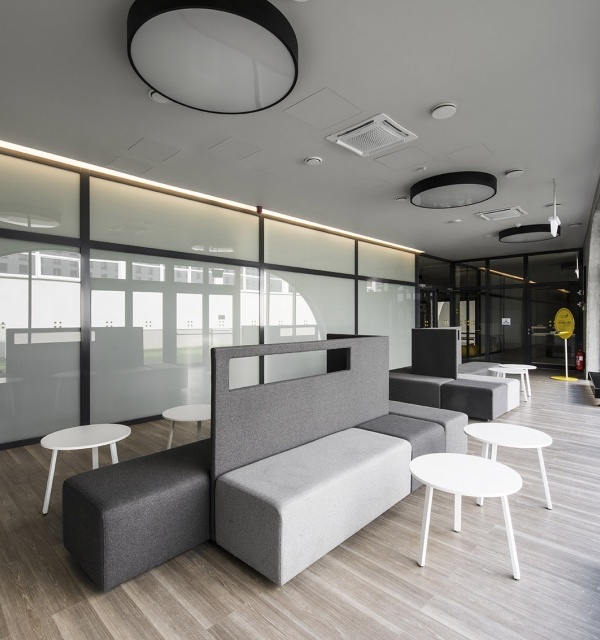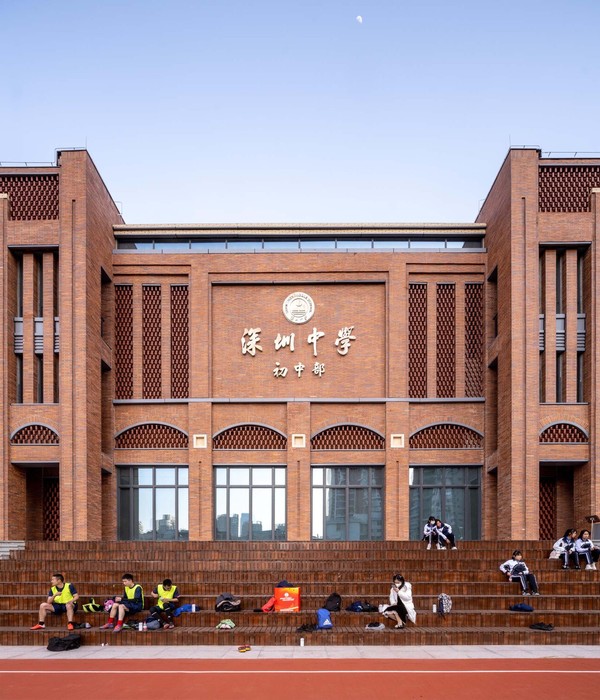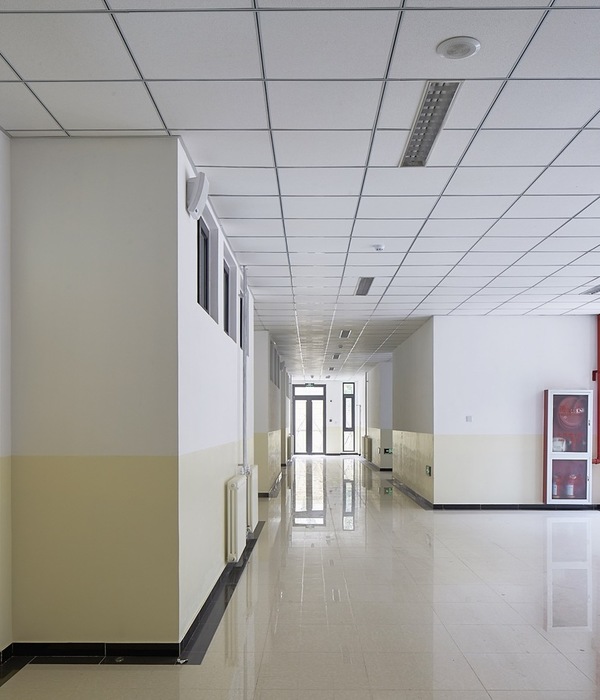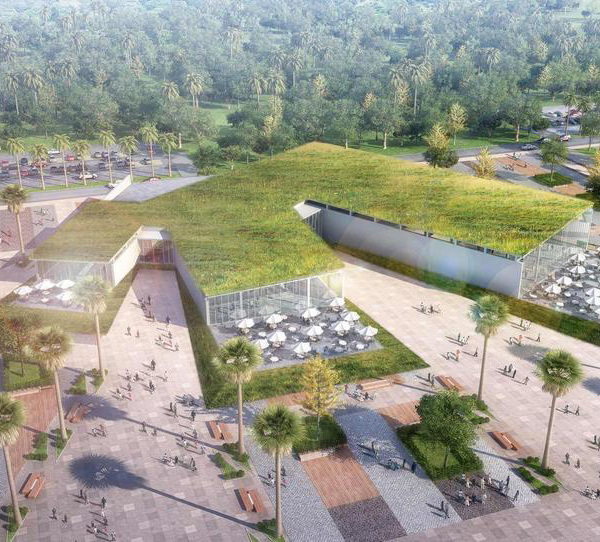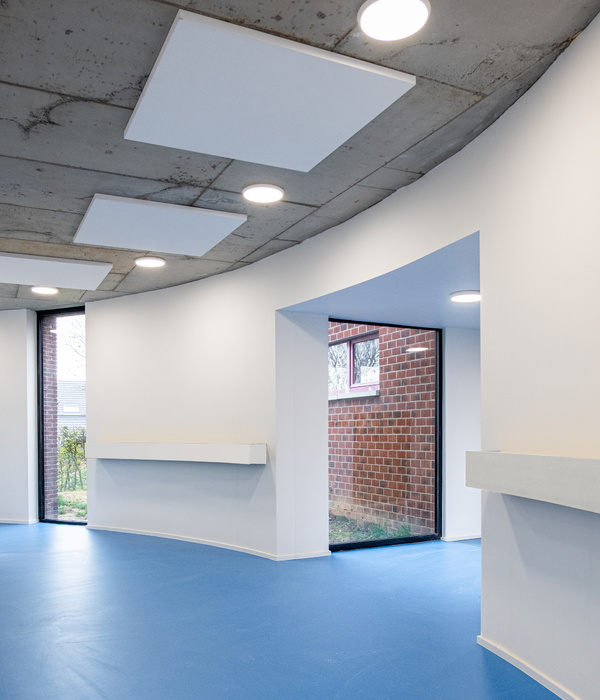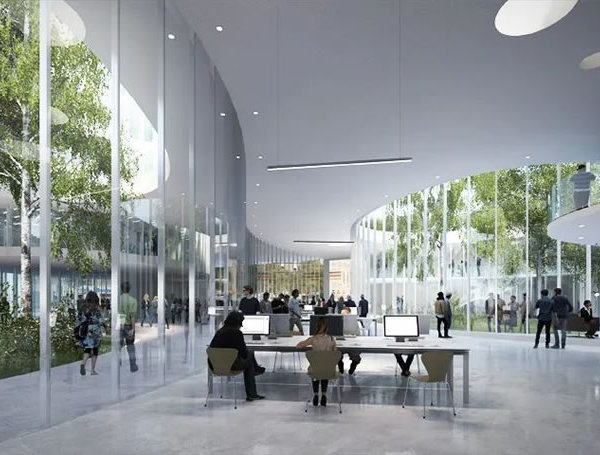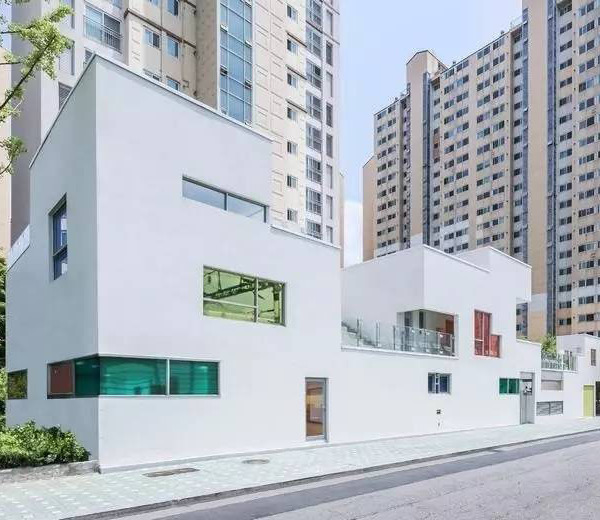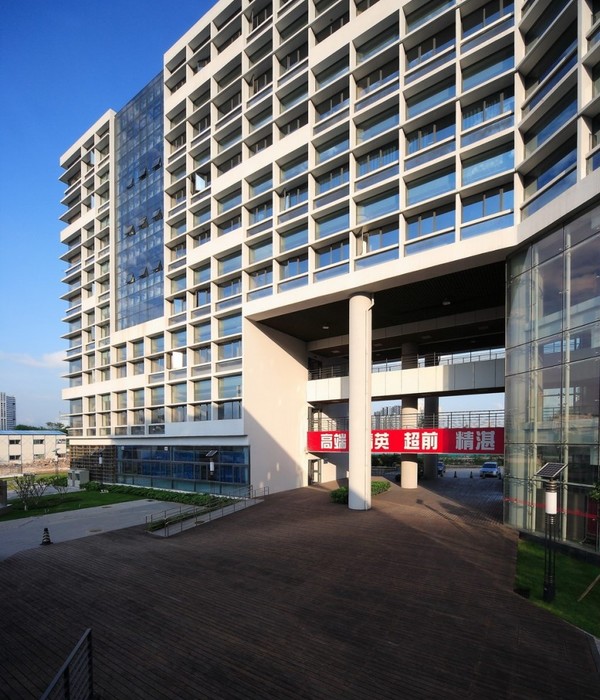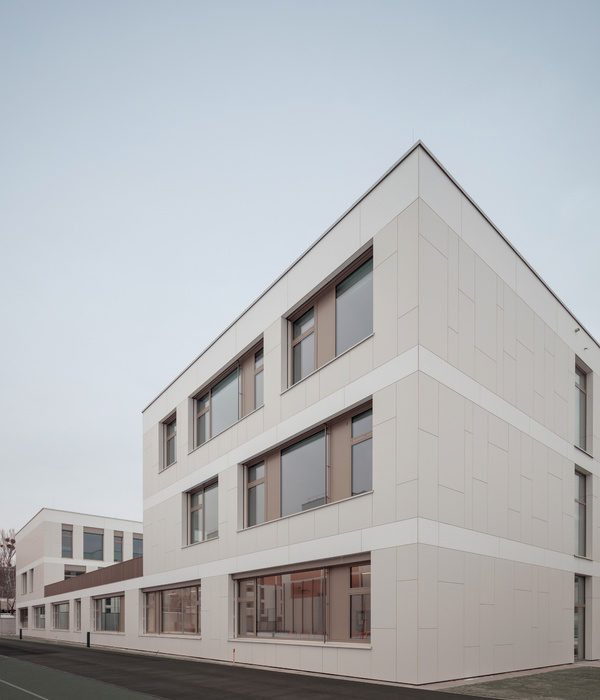新泰仓库 | 旧工业遗迹的现代新生
意大利建筑师Filippo Gabbiani和Andrea Destefanis联合成立的Kokaistudios最近完成了上海新泰仓库建筑的改造工程。新改造与旧建筑之间取得了恰到好处的平衡,室内呈现出滋味也许让会让外行人感到”这就是没有装修完” ! 但这种基调却是不少建筑师的心头之爱,也是不少新兴科技公司乐于接受的品味风格。
新泰仓库坐落在上海苏州河北岸,该区域曾是上海繁盛的工业时代的引擎。而今前所未有的改造正在此区域进行着。原有城市肌理里的石库门建筑与工业遗迹相交织的构成正在慢慢消逝,一同被抹去的还有它们所代表的回忆。取而代之的是高层住宅和办公楼。
The project is located in Shanghai, on the North bank of the Suzhou Creek. The area, once the vibrating industrial engine of the colonial Shanghai, is today undergoing an unprecedented and controversial process of transformation, where consistent portions of the original urban fabric, ‘carpets’ of shikumen intertwined with warehouses and industrial artifacts, are being cancelled together with the memory they represent, replaced by high rise residential and office towers.
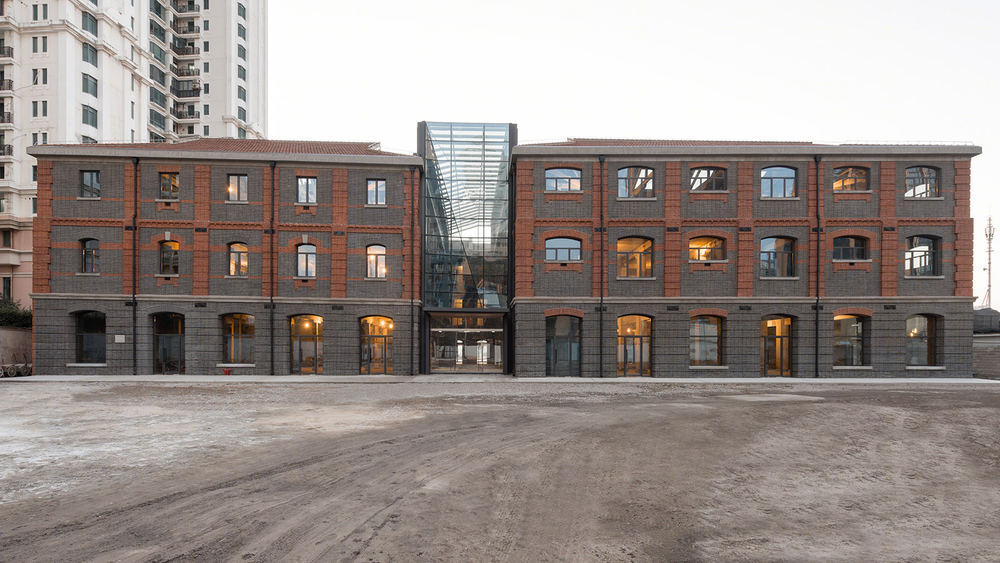

新泰仓库建于上世纪二十年代,原为纺织品工厂和仓库。项目面积6000平方米, 体量巨大,已被归为保护建筑,成为昔日工业繁盛时期的历史证明。Kokaistudios的此次改造旨在将原建筑转型为灵活的商业与办公空间。苏州河沿岸近年来变迁巨大,为了能适应不断变化的环境和需求,须赋予建筑新的功能和科技。
The warehouse, an early 20 Century British facility for the production and the stock of textiles is among the few testimonies of the industrial history of the city still standing in the area. Its unconventionally big scale, 6000m2 on three floors, and its remarkable state of conservation had it a listed as a protected industrial heritage. In order to survive, the building had to be repurposed to new functions, technologically upgraded and transformed into flexible commercial and office spaces, readapted to a context radically transformed and different from the one it originally belonged to.
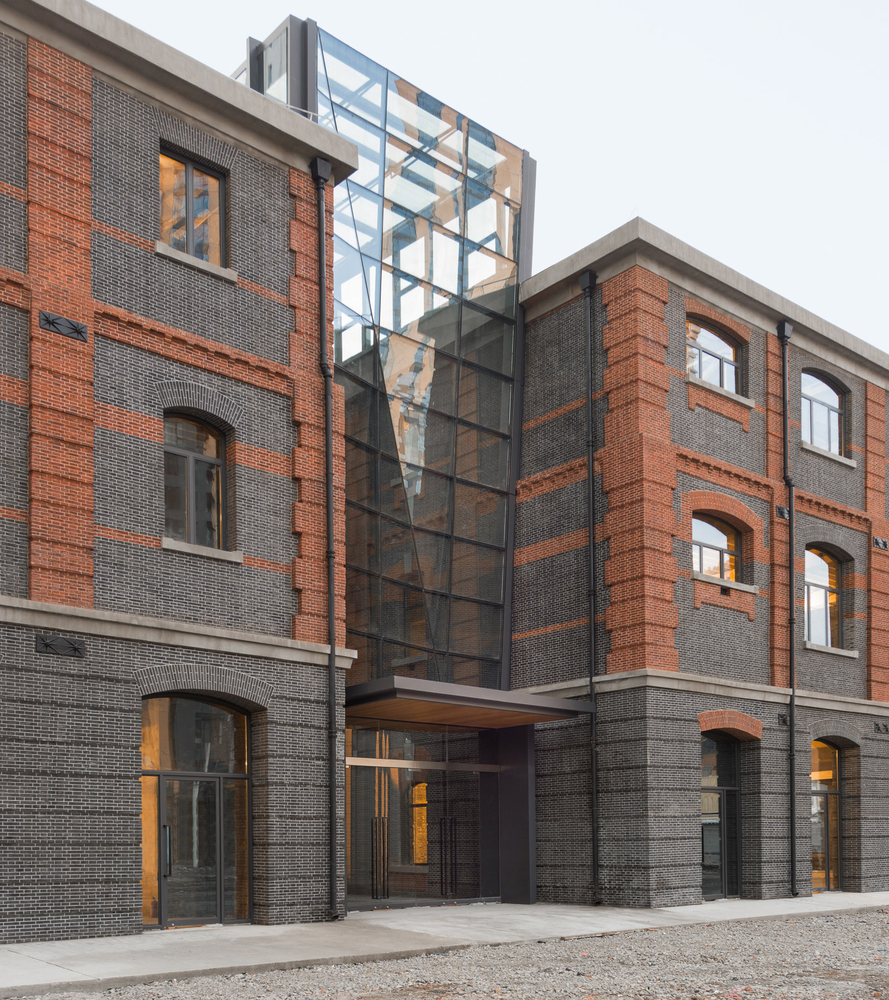
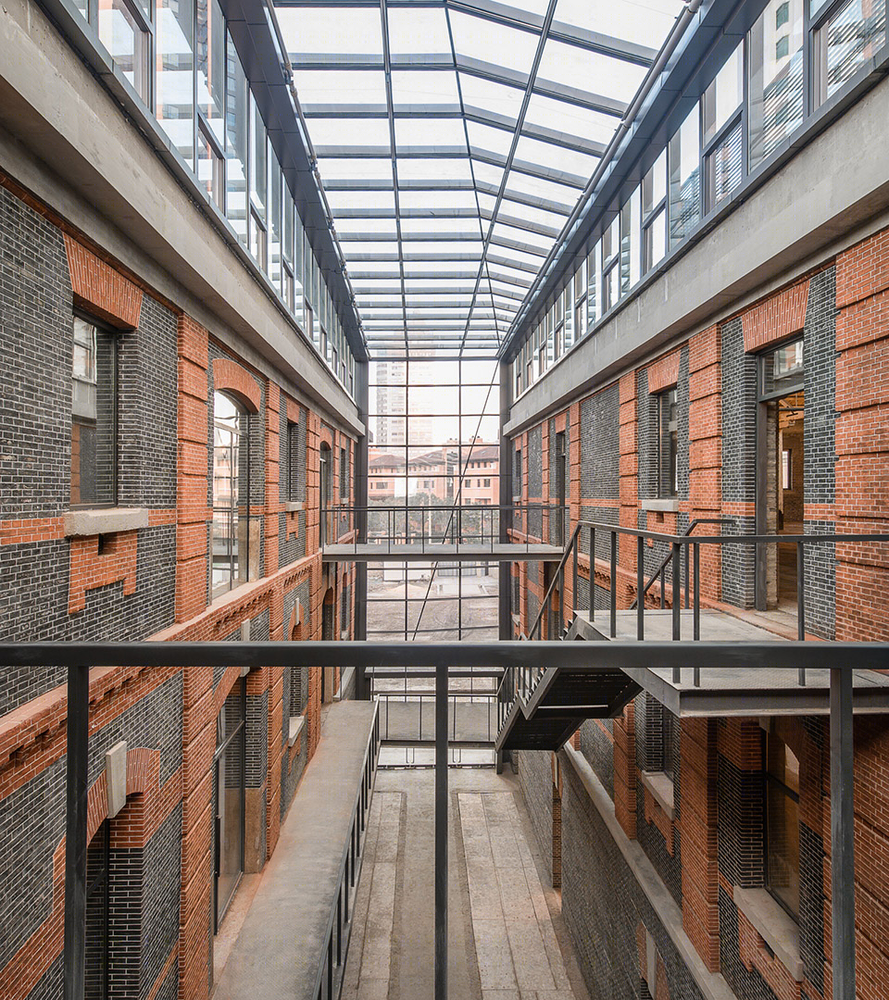
建筑改造既要符合严格的遗产建筑保护要求又要有创新的设计方案。第一阶段包括所有公共区域和部分内部空间。
经过详尽的调研、细致的清洗、去除后期加建以及修复受损部分,建筑原先的质感逐渐展露出来。Kokaistudios对修复和改造遵循可逆的和区别于原来两大准则。
室内动线围绕中庭被重新设计,并覆盖玻璃顶。轻质钢结构楼梯和回马廊悬挂在砖墙立面上,呈螺旋状上升,连接入口与楼层。覆盖中庭上空的折面玻璃一直延续到外立面主入口的雨棚。
历史和现在在中庭交汇,两种设计语言彼此互补从而达到平衡。
The architectural renovation project, first phase of a process that will include the design of all common areas and part of the future tenants’ interiors, was devised as a careful mix of rigorous conservation and innovative solutions.
The original textures of the building resurfaced though a careful process of survey, cleaning, removal of non original additions, reconstruction of damaged or lost parts, always reversible and distinguishable from the original.
The internal circulation was redesigned around the main atrium, covered by a shimmering glass roof. The light steel-structure balcony, cantilevering from the old brick facade, spirals around the void, connecting the entrance to the upper floors. A sculptural surface of glass encloses the atrium, resolving roofing and facade with a unifying gesture and terminating in a wood clad canopy under which the new main access to the building is located.
Under these two glazed atriums past and present come together, both claiming their rights to expression. The two languages complement each others in a coherent and balanced whole.
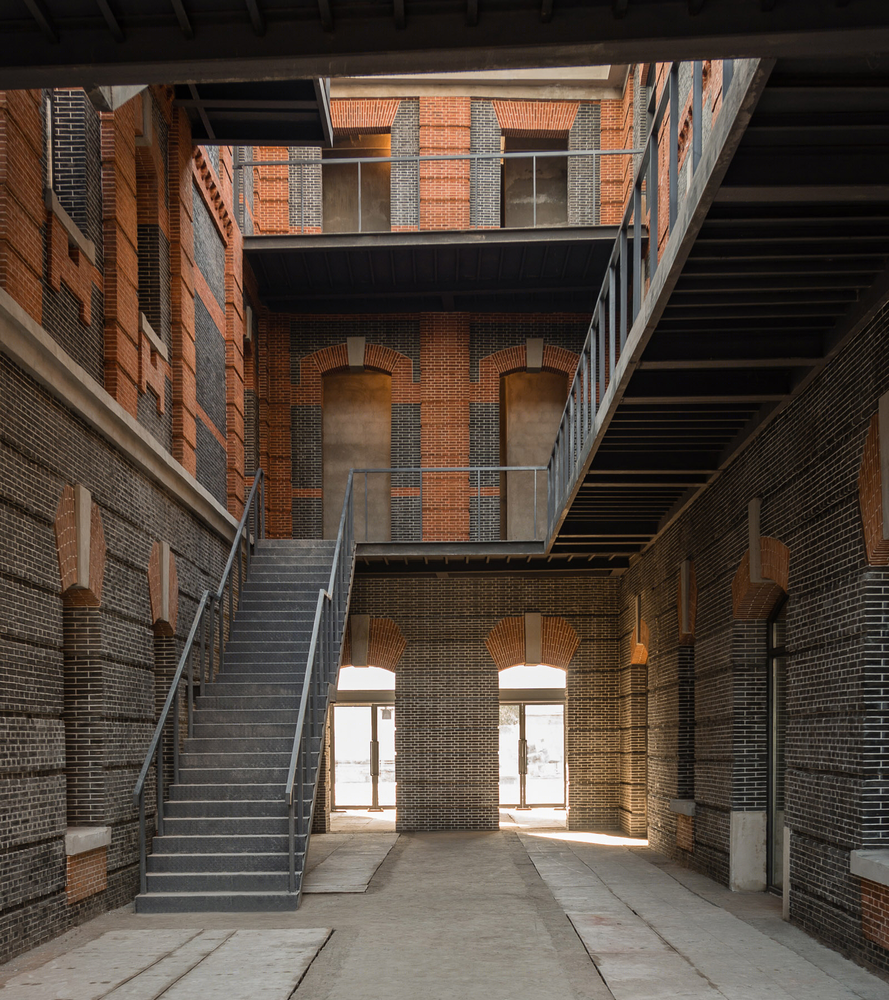
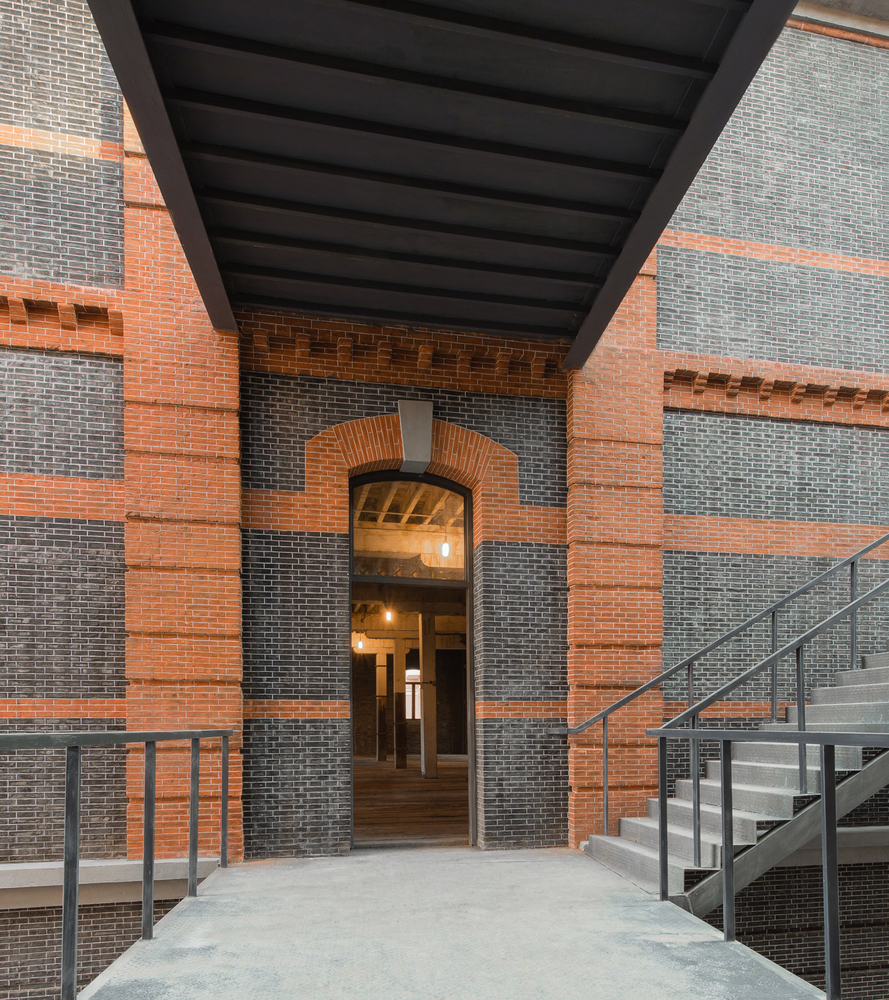
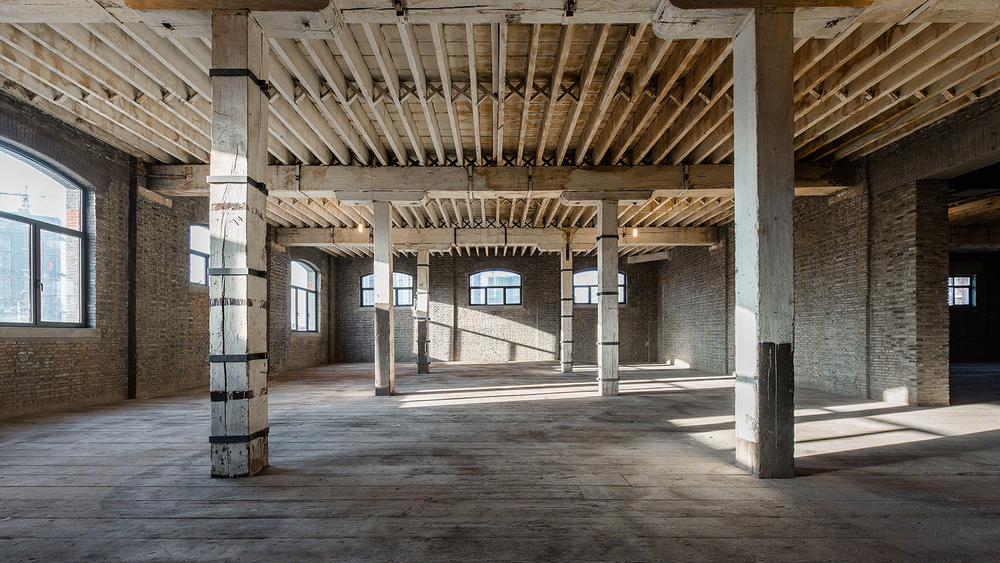
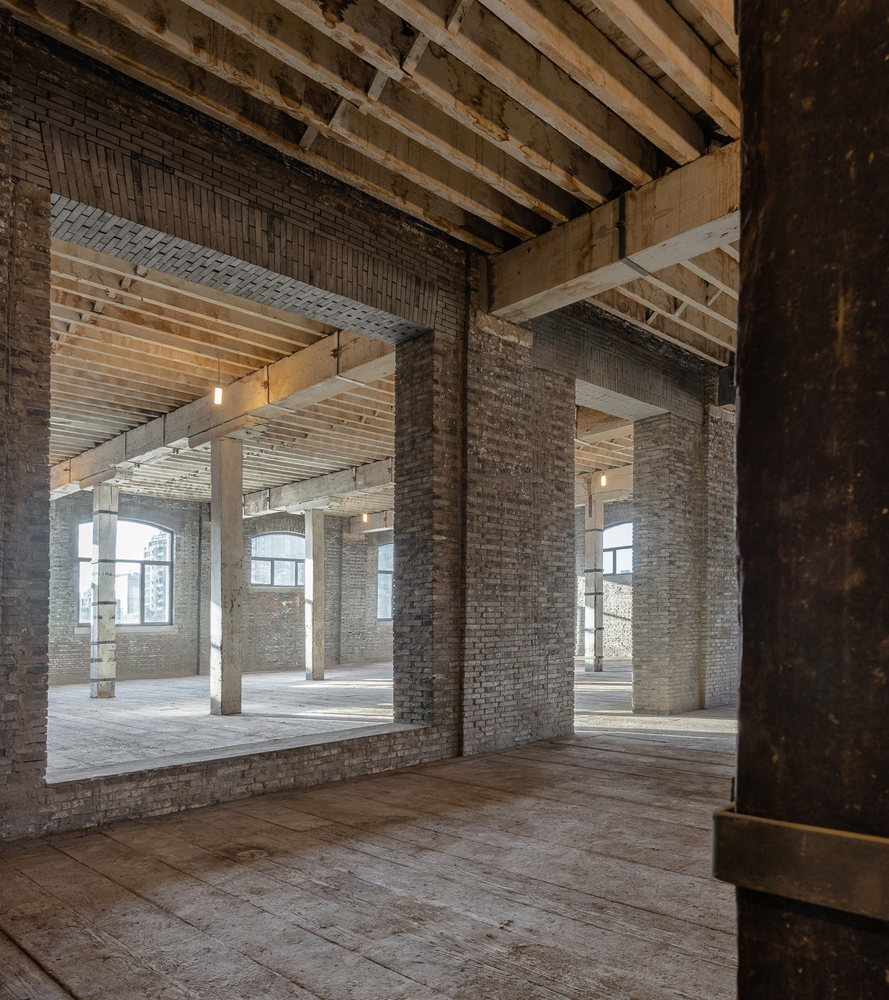
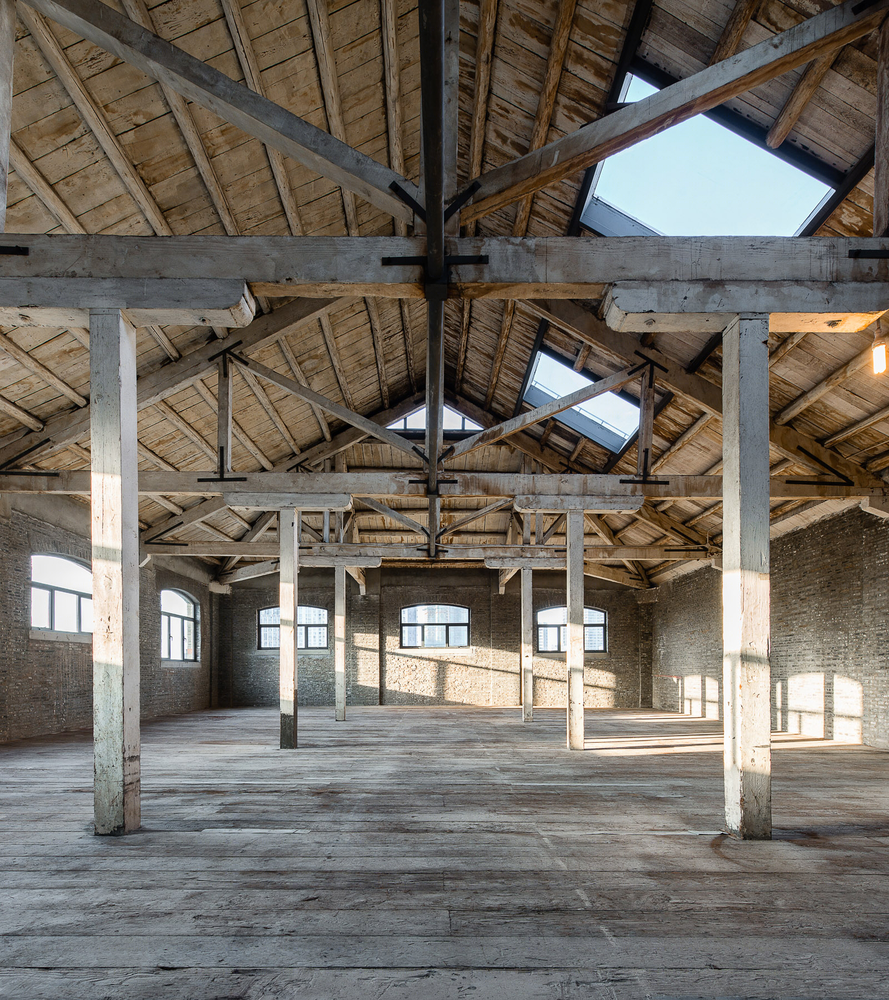
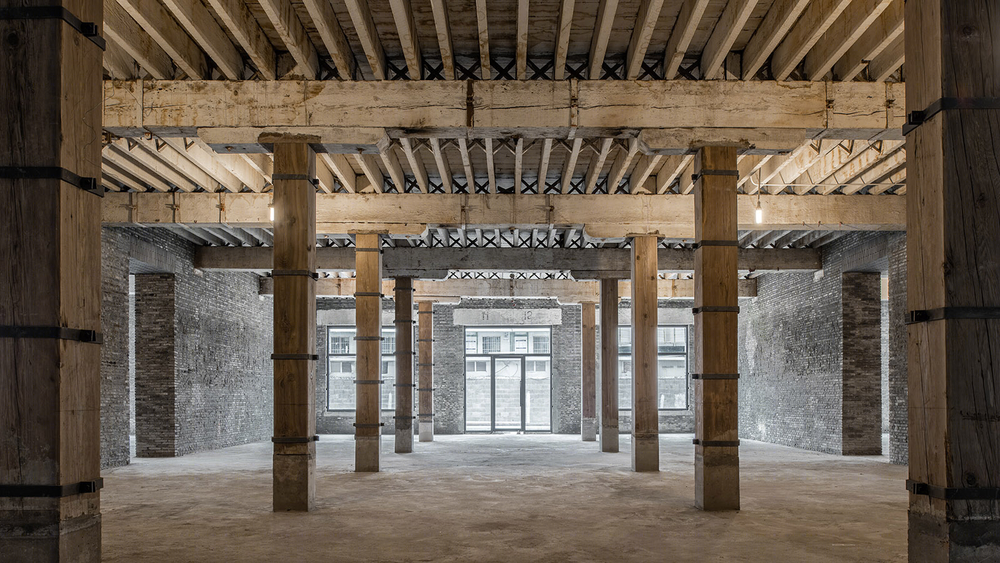
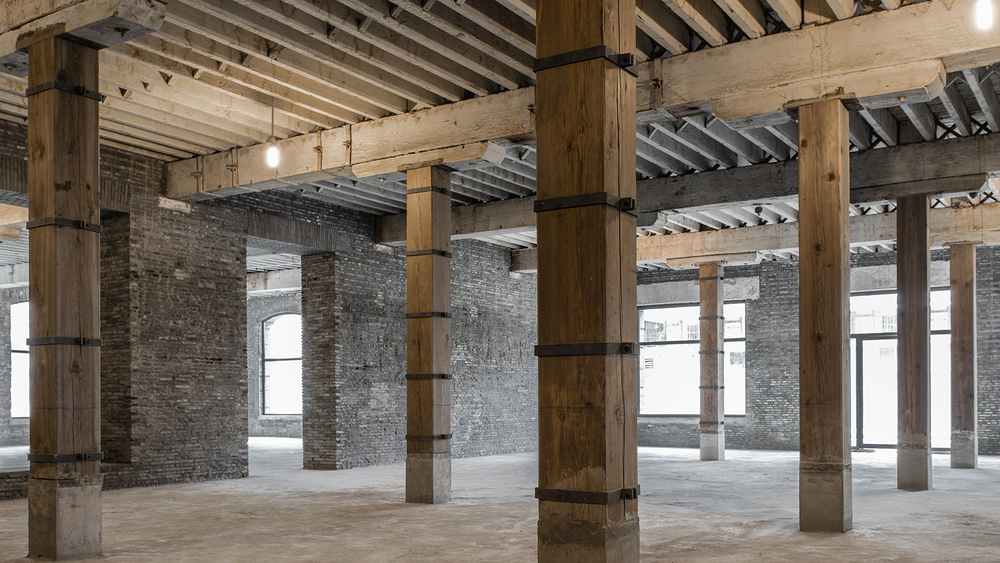
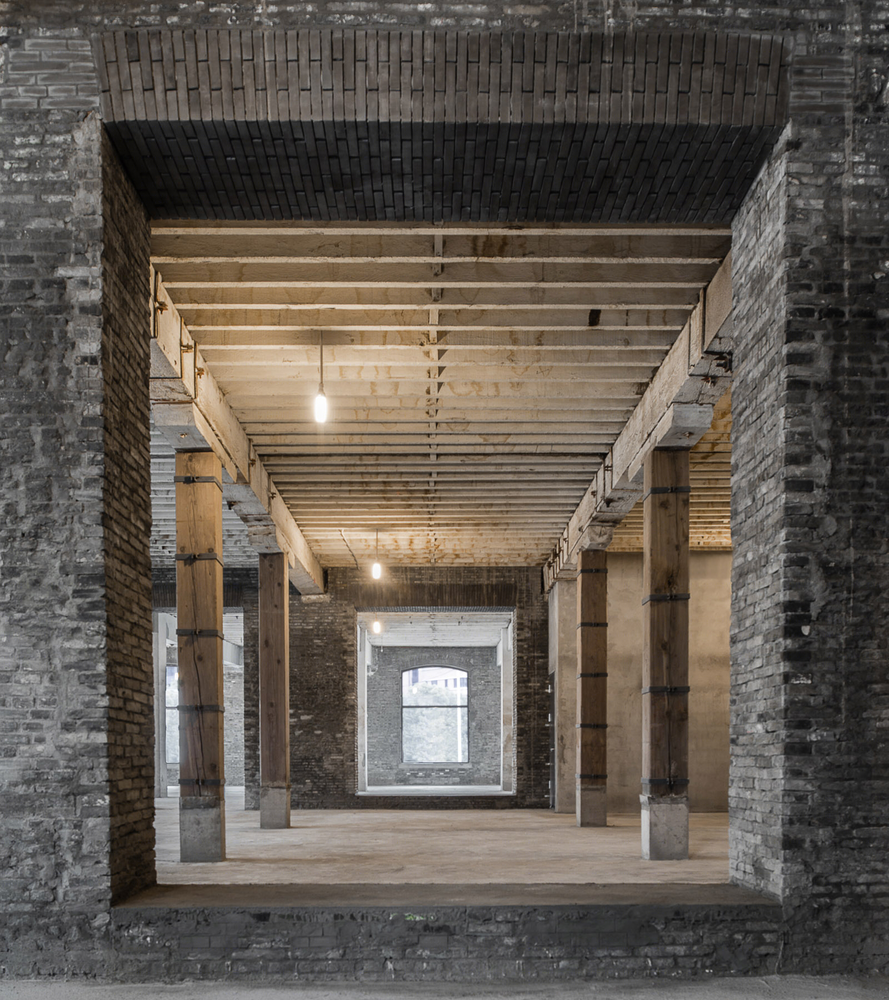



设计团队:
Andrea Destefanis, Filippo Gabbiani, Pietro Peyron, 李伟,刘畅,何文彬, Daniele Pepe, San Dino Arcilla,余立鼎,Anna-Maria Austerveil
项目地点: 上海
面积: 6,000 sqm
建筑改造: Kokaistudios
摄影: Dirk Weiblen
Design team:
Architectural renovation : Kokaistudios
Andrea Destefanis, Filippo Gabbiani, Pietro Peyron, Li Wei, Liu Chang, He Wenbin, Daniele Pepe, San Dino Arcilla, Liding Yu, Anna-Maria Austerveil
Location: Shanghai
Size: 6,000 sqm
Photography: Dirk Weiblen
MORE:
Kokaistudios
,更多请至:

